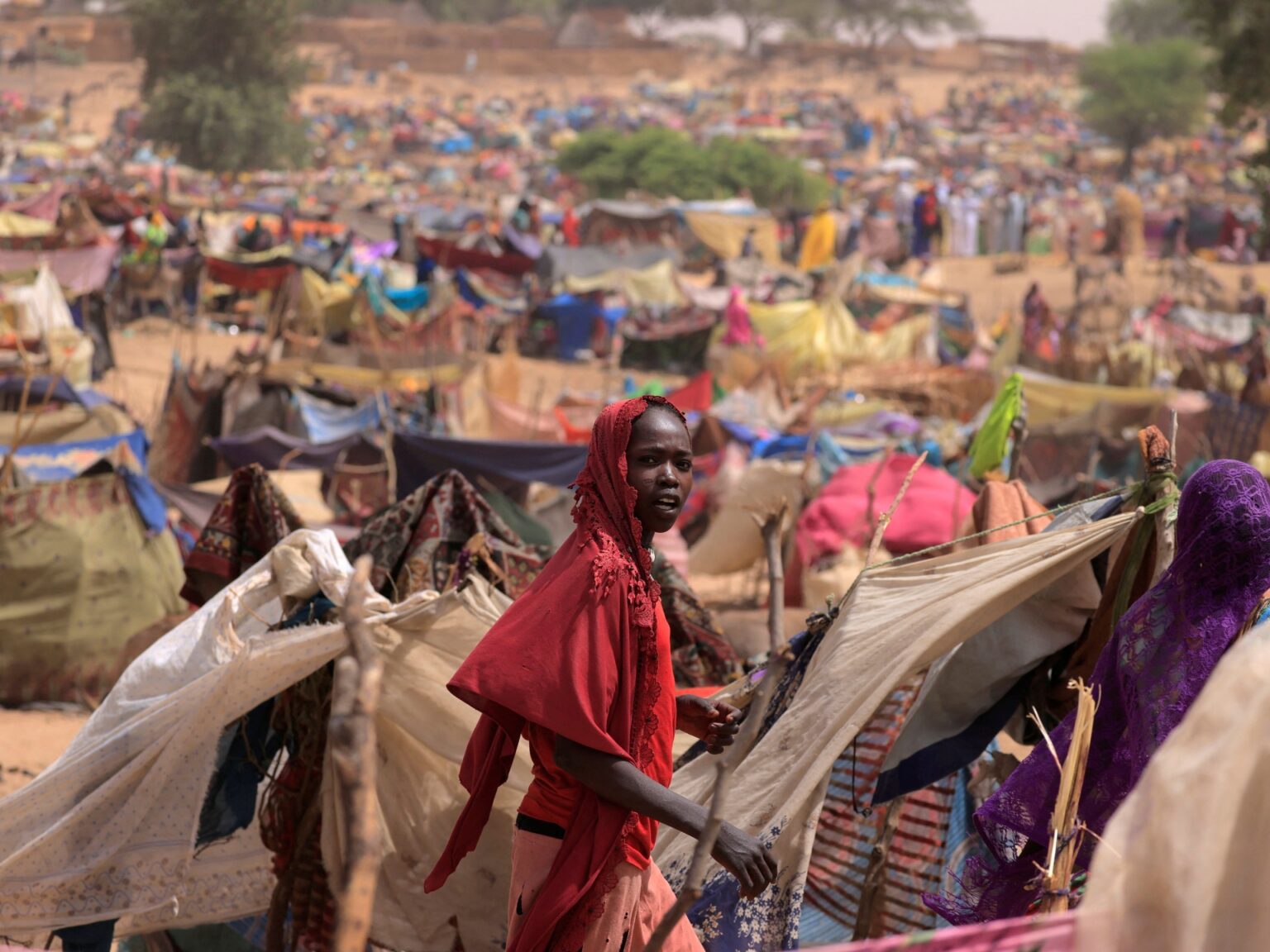Global Courant 2023-05-20 17:37:25
On May 11, representatives of the Sudanese Armed Forces (SAF) and the Rapid Support Forces (RSF) militia reached an agreement in Jeddah, brokered by the United States and Saudi Arabia. The Jeddah Declaration of Commitment to Protect the Civilians of Sudan committed both sides to respect international humanitarian law and to evacuate residential areas.
The declaration was welcomed internationally as a good step forward, but many in Sudan were skeptical. A sarcastic Sudanese commentator commented: “We thought the two warring sides would agree to leave Khartoum; it turned out that they have agreed to let us leave.
On the same day, the Sudanese Foreign Ministry, supported by Arab members in the United Nations Human Rights Council, objected to a British motion calling for closer monitoring of the human rights situation in Sudan and urging an unconditional cessation of hostilities . The resolution was adopted with 18 (mainly European) votes in favour, 15 against and 14 abstentions.
When I expressed surprise on my Facebook page at Sudan’s position given that the Jeddah Declaration had just been signed, committing the warring factions to humanitarian principles, almost all of the comments echoed stories of the West’s duplicity in the field of international law.
There are indeed problems with the international humanitarian regime, and it needs to be seriously examined and radically reconsidered. However, humanitarian emergencies are not the time to give in to the populist rhetoric of mistrust and skepticism. Doing so now would only increase the already high human cost of this conflict.
At the same time, a standard humanitarian response to the situation in Sudan would not be sufficient. In addressing the crisis, the international community must take into account the specificities of this conflict and its own past humanitarian failures.
Intentional uncertainty
The ongoing conflict, which has no clear territorial control boundaries, requires a different humanitarian response than usual.
The country faces multi-level uncertainties due to ongoing fighting everywhere, the inability of any side to enforce its rule anywhere, and lingering uncertainty about the direction of the conflict.
The current humanitarian crisis in Sudan is a direct result of this uncontrollable level of insecurity, exacerbated by the desperate search for refuge by the randomly dispersed RSF fighters. The latter have barricaded themselves in hospitals, ministries, private homes and anywhere they can get, using them as hideouts and sniper positions.
The SAF has used standard military tactics to attack RSF camps and positions across Khartoum. However, the spread of the enemy and its tactics did not lead to territory acquisition, but created a new reality, with the militia following a strategy to maximize insecurity and make normal life impossible for everyone.
Spreading terror in the streets and homes, the RSF has forced people to flee; its ubiquitous presence has hampered the functioning of public services, including health care, food distribution and transportation.
The purpose of all this is to put pressure on the SAF, neighboring countries and the international community to accept RSF demands.
Traditional humanitarian strategies for delivering aid in this situation of heightened insecurity would not work. No help can be provided without restoring a certain level of security.
The Human Rights Council’s call for an unconditional ceasefire is thus anti-humanitarian, especially in light of the commitment made by both sides in the Jeddah Declaration to evacuate hospitals and stop obstructing the functioning of essential civilian Services. A ceasefire that leaves RSF in occupied hospitals, seized homes and other civilian buildings would do nothing to restore normalcy.
Therefore, any cessation of hostilities must begin with the release of abducted civilians and the evacuation of hospitals, private homes and essential civilian installations.
A strong signal must be sent to the militias to comply with these requirements and to refrain from looting, rape, forced recruitment and other violations, as a condition of a ceasefire. Credible threats of sanctions or even limited intervention must also be deployed to enforce compliance.
Another humanitarian response
Once security is restored, international aid agencies will need to think carefully about the kind of aid the Sudanese people need. In the current situation, half of Khartoum’s population needs food aid. The looting of banks, shops, homes and private property (mainly by the RSF, but also by unruly gangs) means few people can get their hands on cash.
But if uncertainty is reduced, life can return to normal. If combatants withdraw from civilian areas, public transport could resume and necessary facilities and public services could resume operation. In this case, food may not be the greatest necessity for humans; there is no shortage of food around Khartoum
So there is no point in importing food and aid workers by aid organizations when the job can be done for only a fraction of the cost by using local resources and labor.
At the same time, the public sectors are being hit hard. Take healthcare, for example. Due to the security situation, many medical professionals have left Khartoum and even the country. The RSF has also kidnapped doctors and other health workers to employ them as part of their informal “medical corps”. They also occupied and destroyed many hospitals in the capital.
Thus, priority should be given to restoring security in the shortest possible time, in addition to providing emergency hospitals and emergency housing for healthcare workers to enable them to resume their duties.
When mapping the response to the crisis in Sudan, humanitarian organizations should also consider their own past failures.
The fateful IMMEDIATELY peace mission in Darfur (2007-2020) is a textbook example of how the structures of UN operations can undermine the organisation’s humanitarian goal. It failed to protect civilians despite the deployment of some 26,000 troops.
What UNAMID has shown is that the mere deployment of peacekeepers in a complex war zone is no substitute for addressing the causes and consequences of the conflict itself. A fraction of the cost of the mission would have helped resolve the crisis had it been spent on reconciliation and resettlement of displaced persons.
‘Western double standards’
An interesting side effect of the crisis in Sudan is the resurgence of some of the well-known populist rhetoric of “Western double standards” and ulterior motives related to humanitarianism and peacemaking. This started with anger at how foreign countries were so concerned about evacuating their citizens and international workers while completely ignoring the affected Sudanese citizens; it continued with the Jeddah statement and UNHRC resolution.
This is a reflection of Sudan’s own checkered history of responses to humanitarian crises. Over the past five decades, the country has experienced a series of major disasters, mainly famines exacerbated by war and sometimes droughts and floods.
During the famines of 1973-74 and 1984-85, President Jaafar Nimeiry refused to declare an emergency or even admit that there was hunger. When challenged on this issue by a journalist, he claimed that in Sudanese culture it was “shameful” to beg for food. Nimeiry’s regime fell in 1985, in part because he failed to deal with the famine.
Another major emergency occurred in 1988, when two years of drought were followed by massive flooding. The democratically elected government of the time accepted foreign aid, but it was too little, too late, and delivery was chaotic. The insurgent Sudan People’s Liberation Army refused to allow aid to the south.
As a result, more than a quarter of a million people died, sparking an international outcry and forcing the parties to accept a groundbreaking UN initiative in 1989 called Operation Lifeline Sudan. The operation delivered aid directly to the South, without government oversight. Omar al-Bashir’s military regime repeatedly complained about the abuse of the operation, especially the use of aid aircraft by rebel commanders, but allowed it to continue until the end of the war in 2005.
However, the regime refused to recognize a 1990-91 famine in another part of the country and continued to hamper relief operations in certain areas.
When the Darfur crisis broke out in 2003, al-Bashir instituted aid and tightened controls on aid workers, who had difficulty obtaining visas or even permits to leave Khartoum. NGOs were regularly evicted.
The regime used the same populist aid narratives as part of foreign control machinations, accusing aid workers of being spies; it also criticized aid as a dependency-creating strategy.
There is a threat of a return to that rhetoric of condemning aid in the name of anti-colonialism and national sovereignty. This could be detrimental to the victims of the current conflict.
The arguments about the duplicity of major international powers with regard to humanitarianism and human rights must be taken seriously. Indeed, the economic pay structure for international workers continues to have a corrupting influence on the profession. However, humanitarian organizations still provide much-needed assistance to the underprivileged and continue to attract dedicated idealists
Whatever the doubts about international humanitarianism, the focus must be on helping those whose lives depend on it.
There is a saying from the Prophet Muhammad that a woman was sent to hell for starving a cat. She did not feed it, nor did it leave it free to forage for its own food. If starving a cat can bring eternal damnation, what about starving dozens of people?
The views expressed in this article are those of the author and do not necessarily reflect the editorial view of Al Jazeera.








